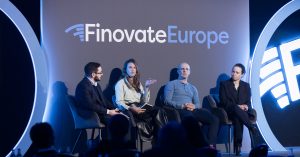The 11th March marked the end of the first Romanian fintech acceleration program NEXT FinTech designed to offer local startups assistance in go-to-market strategies and investment readiness which was organized by Techcelerator with the support of the EFSE Development Facility, Google for Startups, GapMinder VC, TechAngels, RoFin.Tech, Stripe, and the Department for International Trade at the British Embassy in Bucharest. After 12 weeks of working on sales and matching, product marketing and transition strategies, and investment readiness, the 11 startups from this year’s cohort made their final pitches before the international investors’ jury.
From the 11 early-stage fintech startups that took part in the accelerator, the investors awarded the B2B platform 22 Trust Ventures which gives retail banks AI advice for dynamic pricing with Best Product, the platform for renting and managing commercial spaces Leaseman with Best Startup, the app Investory which uses gamification for financial education with Best Pitch and the platform that analyses geo-located public data to provide businesses with socio-economic insight Zoom Report with Popularity Award. During the final of the program, founders and viewers had the opportunity to hear some exerts insights and advice from the co-founder and CEO of FintechOS Teodor Blidarus, the President of the Romanian Fintech Association, Cosmin Cosma, and Cristian Dascalu who is a Partner at GapMinder VC, Romania.
Patience and networking is the key to fintech success
So, what did the experts advise the early fintech founders? According to Teodor Blidarus, startups should attract as many leaders as they can while they are still in their early stages of development, instead of getting obsessed with positioning themselves in some specific market niches. The co-founder of FintechOS advises founders to be open to opportunities as they come and be ready to start in one financial niche and end up pivoting in another area. He also recommends that in order to set their name in the market, founders should work with local VCs and inventors instead of chasing UK and US investors. Blidarus emphasizes the importance to get as many entrepreneurs and leaders “ïn the boat” because even though solo entrepreneurs can survive and thrive in the short-term when it comes to scaling-up, only connections can make the difference. On a similar note the co-founder of Techcelerator and current partner at GapMinder, Christian Dascalu, views that SEE startups are not equipped to go to market independently and gain fast traction in order to validate their solutions before investors. According to him, a pain point in the ecosystem is that founders focus too much attention on perfecting their product instead of developing a quick MVP and taking small pieces of their solution to a commercial validation in order to further boost their development activities.
The president of RoFin.Tech Cosmin Cosma points out that building a fintech startup without the previous experience of working with a bank because if founders are not well-acquainted with the way banks function, the system will reject them even if they have developed a fully-functioning solution. Therefore, he believes that fintech entrepreneurs should learn how to be humble and patient when working with banks.







